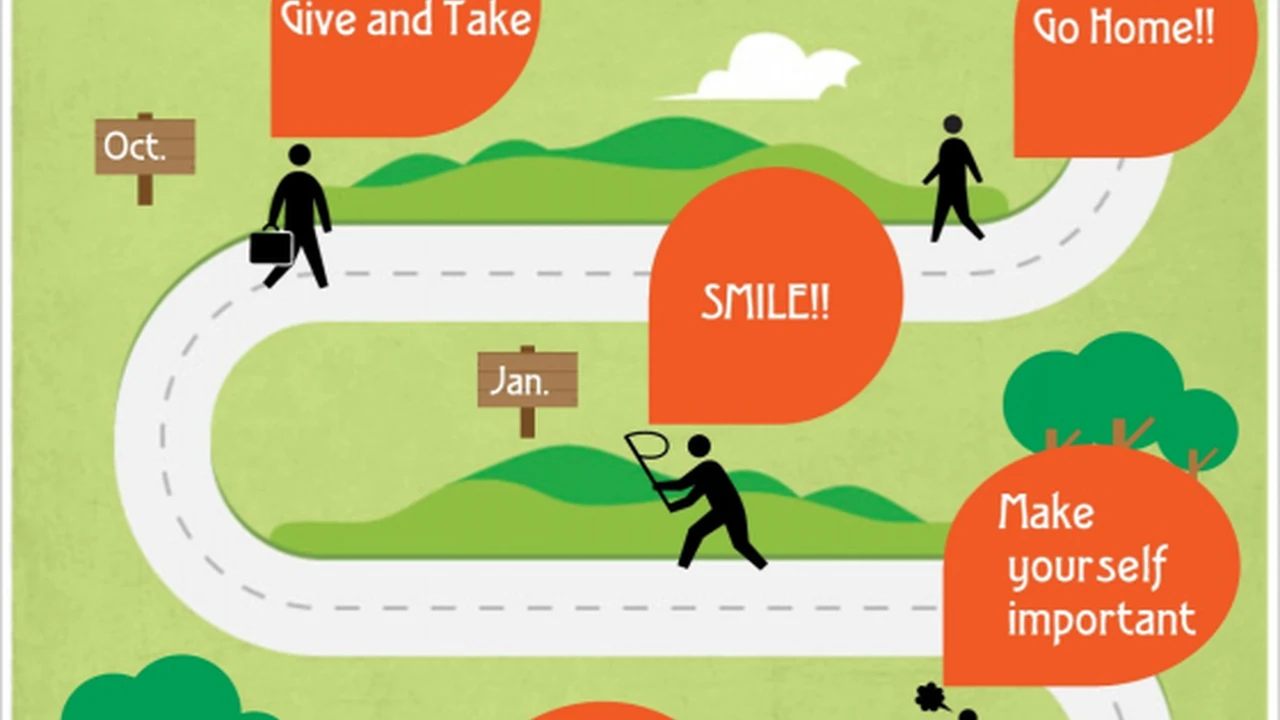Avoiding Burnout in Online Learning Strategies for Well-being
Strategies for avoiding burnout in online learning. Maintain your well-being while pursuing your educational goals.

Avoiding Burnout in Online Learning Strategies for Well-being
Hey there, fellow online learners! We've all been there, right? You start an online course with all the enthusiasm in the world, ready to conquer new skills and boost your career. But then, somewhere along the line, the endless video lectures, forum discussions, and looming deadlines start to feel less like an exciting journey and more like a relentless uphill battle. That, my friends, is the sneaky beast called burnout, and it's a very real challenge in the world of online learning. But don't sweat it! We're here to arm you with some solid strategies to keep that fire burning and maintain your well-being while you're crushing those educational goals.
Understanding Online Learning Burnout What It Is and Why It Happens
First things first, let's get a clear picture of what we're up against. Online learning burnout isn't just feeling a bit tired; it's a state of physical, emotional, and mental exhaustion caused by prolonged or excessive stress. In the context of online learning, it often stems from a few key factors:
- Lack of clear boundaries: When your classroom is also your living room, it's super easy for work and personal life to blend into one big, blurry mess.
- Information overload: The sheer volume of content in some online courses can be overwhelming, making you feel like you're constantly playing catch-up.
- Isolation: Unlike traditional classrooms, online learning can sometimes feel a bit lonely, especially if you're not actively engaging with peers or instructors.
- High expectations: We often put immense pressure on ourselves to excel, leading to perfectionism and fear of failure.
- Constant screen time: Staring at a screen for hours on end can lead to eye strain, headaches, and general fatigue.
Recognizing these signs early is half the battle. If you're feeling constantly drained, irritable, unmotivated, or finding it hard to concentrate, it's time to hit the brakes and reassess your approach.
Setting Healthy Boundaries for Sustainable Online Study Habits
One of the most crucial steps to preventing burnout is establishing clear boundaries. Think of it as building a fence between your study life and your personal life, even if they share the same physical space.
Dedicated Study Space Creating Your Learning Sanctuary
Try to designate a specific area for your studies. It doesn't have to be a fancy home office; even a corner of a room can work. The key is to make it a place where you primarily focus on learning. When you're in that space, you're in 'study mode.' When you leave it, you're in 'relax mode.' This mental shift can be incredibly powerful.
Scheduled Study Times Sticking to a Routine
Just like a traditional class schedule, block out specific times for your online learning. Treat these times as non-negotiable appointments. This helps train your brain to be productive during those hours and allows you to fully disengage when your study time is over. For example, if you decide to study from 9 AM to 1 PM, make sure you're done by 1 PM and switch to other activities.
Digital Detox Breaks Unplugging for Mental Recharge
It's tempting to stay glued to your screen, but regular breaks are essential. Step away from your computer, stretch, grab a snack, or even take a short walk. Consider implementing a 'digital detox' for a few hours each day or even a full day on weekends. This means no course materials, no emails, no social media related to your studies. Your brain needs time to process and rest.
Prioritizing Self-Care and Well-being During Online Courses
Self-care isn't a luxury; it's a necessity, especially when you're pushing yourself academically. Think of your body and mind as a high-performance engine – it needs regular maintenance to run smoothly.
Adequate Sleep The Foundation of Focus and Memory
This one might seem obvious, but it's often the first thing to go when deadlines loom. Aim for 7-9 hours of quality sleep per night. Sleep deprivation not only makes you feel sluggish but also impairs your cognitive functions, making it harder to learn and retain information. Tools like sleep trackers (e.g., Oura Ring or Fitbit) can help you monitor your sleep patterns and encourage better habits. The Oura Ring, for instance, tracks sleep stages, heart rate variability, and body temperature, providing insights into your recovery and readiness for the day. It typically ranges from $299-$399.
Nutritious Eating Fueling Your Brain and Body
What you eat directly impacts your energy levels and concentration. Opt for whole foods, fruits, vegetables, and lean proteins. Avoid excessive sugar and processed foods that can lead to energy crashes. Meal prepping on weekends can save you time and ensure you have healthy options readily available during busy study weeks.
Regular Physical Activity Boosting Mood and Energy
Even a short walk or a quick home workout can make a huge difference. Exercise releases endorphins, which are natural mood boosters, and helps reduce stress. There are tons of free workout videos online, or you could invest in a simple fitness tracker like a Garmin Forerunner (prices vary from $150-$500 depending on the model) to keep tabs on your activity levels and encourage you to move more.
Mindfulness and Relaxation Techniques Calming the Mind
When stress starts to build, mindfulness practices can be incredibly effective. Simple breathing exercises, meditation, or even just taking a few moments to focus on your senses can help calm your nervous system. Apps like Calm or Headspace (both offer free trials, then subscription fees around $70/year) provide guided meditations and sleep stories that can be a lifesaver for stressed-out students.
Effective Time Management and Study Strategies for Online Learners
Smart study habits can significantly reduce feelings of overwhelm and prevent burnout. It's not about studying harder, but studying smarter.
Breaking Down Tasks The Power of Small Steps
Large assignments can feel daunting. Break them down into smaller, manageable chunks. Instead of 'write essay,' think 'research topic,' 'create outline,' 'write introduction,' and so on. Checking off these smaller tasks provides a sense of accomplishment and keeps motivation high.
The Pomodoro Technique Focused Work Intervals
This popular time management method involves working in focused 25-minute intervals, separated by short 5-minute breaks. After four 'Pomodoros,' you take a longer break (15-30 minutes). This technique helps maintain focus and prevents mental fatigue. There are many free Pomodoro timer apps available for your phone or computer, such as Focus To-Do or Forest (Forest has a free basic version, premium features around $1.99/month).
Utilizing Planning Tools Digital and Analog Organizers
Keep track of deadlines, assignments, and study schedules using a planner. Whether you prefer a digital calendar (like Google Calendar or Outlook Calendar, both free) or a physical planner (like the Passion Planner, around $30-$40), having a clear overview of your commitments reduces anxiety and helps you prioritize. Trello (free for basic use) is also a great visual tool for managing projects and tasks.
Active Learning Techniques Engaging with Content
Instead of passively watching lectures, engage actively with the material. Take notes, ask questions (even if it's just to yourself), summarize key points, and try to explain concepts in your own words. This deeper engagement improves retention and makes learning more stimulating.
Building a Support System Connecting with Peers and Mentors
Remember that feeling of isolation we talked about? You don't have to go through this alone. Building a support system can be incredibly beneficial.
Online Study Groups Collaborative Learning
Many online courses offer forums or dedicated spaces for students to connect. Join or create study groups. Discussing concepts with peers can clarify doubts, offer new perspectives, and make the learning process more enjoyable. Platforms like Discord (free) are excellent for setting up virtual study spaces and voice chats.
Connecting with Instructors and TAs Seeking Guidance
Don't hesitate to reach out to your instructors or teaching assistants if you're struggling. They are there to help! Asking questions not only clarifies your understanding but also shows your engagement and commitment.
Mentorship and Accountability Partners Mutual Support
If possible, find a mentor in your field or an accountability partner who is also pursuing online learning. Having someone to share your progress with, discuss challenges, and celebrate successes can provide invaluable motivation and support.
Recognizing Warning Signs and Seeking Help When Needed
Sometimes, despite our best efforts, burnout can still creep in. It's crucial to recognize when you might need more than just self-care strategies.
Persistent Fatigue and Lack of Motivation When to Worry
If you're experiencing persistent fatigue, a profound lack of motivation, feelings of hopelessness, or significant changes in your sleep or appetite for an extended period, these could be signs of something more serious than just burnout, such as depression or anxiety.
Professional Help Don't Hesitate to Reach Out
If you suspect you're dealing with more than just typical stress, please don't hesitate to seek professional help. Many universities and online learning platforms offer counseling services, or you can reach out to a mental health professional. Talking to someone can provide you with coping mechanisms and support tailored to your specific needs.
Online learning is an incredible opportunity for growth and development, but it requires a mindful approach to your well-being. By setting boundaries, prioritizing self-care, adopting smart study habits, and building a strong support system, you can navigate your educational journey successfully and avoid the pitfalls of burnout. Keep learning, keep growing, and most importantly, keep taking care of yourself!
:max_bytes(150000):strip_icc()/277019-baked-pork-chops-with-cream-of-mushroom-soup-DDMFS-beauty-4x3-BG-7505-5762b731cf30447d9cbbbbbf387beafa.jpg)






